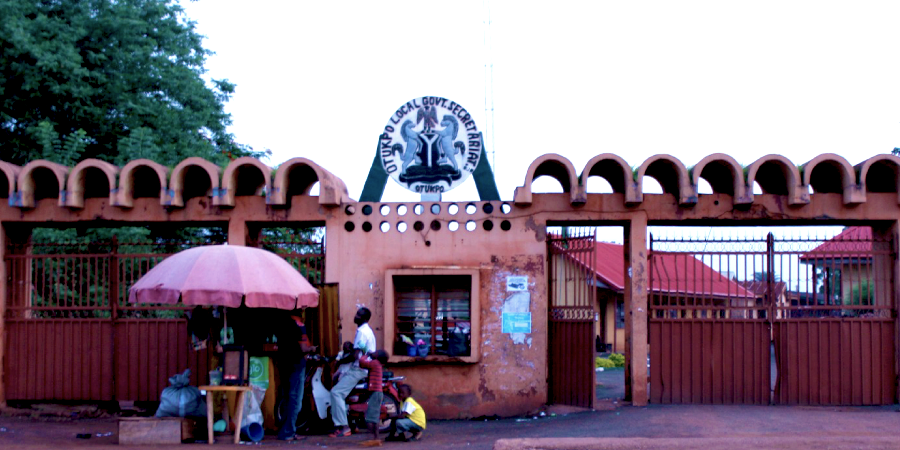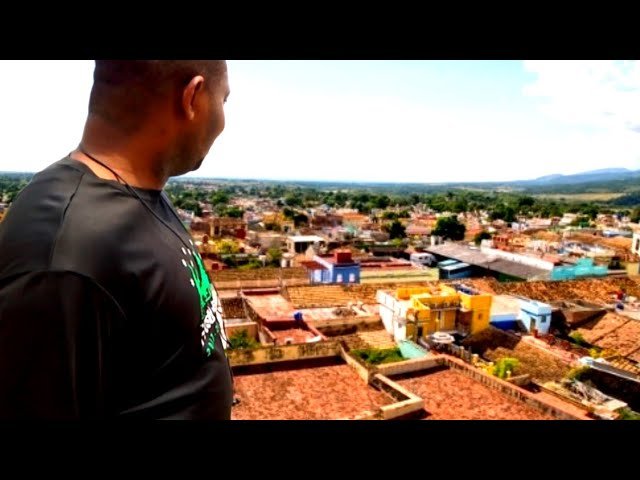
In the quiet town of Otukpo, Benue State, something extraordinary is unfolding. At just 15 years old, Agbo Adoga is making waves far beyond his hometown—his story of grit, brilliance and unwavering focus is becoming a beacon of hope for students across Nigeria. While many teenagers his age are navigating social media and exams, Adoga is rewriting academic history.
Raised in Otukpo, Adoga’s beginnings were modest. His family, the community, his school – all played roles in nurturing a young boy with an insatiable appetite for numbers, puzzles and problem-solving. But no one could have predicted the spectacular records he was about to shatter. At the heart of his journey lie three fundamentals: curiosity, consistency, and the belief that age is just a number when ambition and discipline lead the way.
Earlier this year, reports confirmed that Adoga achieved a perfect 1600 score on the SAT—an exceptional feat for any student worldwide, let alone a Nigerian teenager. Alongside this came 84 major awards, including global medals in STEM and mathematics competitions. His academic trajectory now spans from national math challenges to international stages, capturing attention and admiration at home and abroad.
Yet beyond the glitz of achievement lies something far more compelling: the lessons that his path can teach other Nigerian students grappling with challenges of access, resources and recognition. In the oft-turbulent landscape of Nigerian education, Adoga’s story reminds us that brilliance can blossom anywhere—with the right nurture and mindset.

Table of Contents
Early Roots from Otukpo and the Maker Mindset
Growing up in Otukpo, Adoga’s environment was far from luxurious. His family wasn’t affluent, his school in a fairly remote region didn’t have all the latest resources, but what they had was a young mind with a hunger to explore and learn. From his Idoma community, he carried cultural values of community, respect, discipline — all intangible but critical parts of his formation.
His interest in mathematics surfaced early: puzzles, challenges, competitions. And once he found what he loved, his natural ability met with disciplined practice. Teachers at Graceland International School in Port Harcourt, who later became his home for formal secondary education, remember his quiet confidence, his refusal to be intimidated by harder problems, his willingness to try again when others gave up.
But a genius-trope alone doesn’t tell the full story. Adoga’s journey emphasises consistent effort, the ability to self-motivate, and leaning on mentors when available. In a system where many promising students fade due to a lack of support, his story highlights the difference a supportive school environment and accessible competitions can make. His switch from Otukpo to Port Harcourt was a turning point: exposure to larger competitions, access to global challenges, and an expanding peer network. And yet, he never forgot his roots—his family, his community and the modest town where it all began.
For many Nigerian students, especially those from less privileged backgrounds, this is a powerful reminder: You may start from a less glamorous place, but the trajectory you set yourself can transcend geography.
Breaking Records and Navigating Global Spaces
Adoga’s list of achievements is astonishing: perfect SAT score, top global placements in mathematics and coding competitions, 84 major awards, and counting. Some of the competitions he excelled in include the Singapore Maths Global Finals 2025, where he was overall runner-up in Grade 11 & 12, and the Singapore & Asian Schools Maths Olympiad (SASMO) 2024, where he scored perfectly. On the international stage, he clinched gold medals at the International STEM Olympiad 2024 (Netherlands) and again at the 2025 edition in Spain.
But global success did not come without bumps. A report revealed that despite qualifying to represent Nigeria in an Olympiad in China, sponsorship challenges from the government blocked his attendance. This exposes a broader systemic issue: talent may exist, but institutional support falters. For Adoga, the obstacle didn’t break his stride; it became a motivation. Instead of viewing the sponsorship setback as a defeat, he pivoted to other competitions, continued to train, and kept shining.
His success has at once stirred national pride and triggered reflection: Why are our schools still failing to consistently back such talent? How many more Adogas might we have if our support systems were better structured?
Adoga’s story offers a blueprint of how a Nigerian student can go from local to global — by:
- leveraging every competition, local or international
- treating failure or blockage as a detour, not an end
- keeping one’s eyes on both short-term goals and long-term vision (his sights reportedly include top global universities)
For Nigerian students reading his story, the message is loud: excellence is possible, no matter where you start.

From Otukpo to the World Stage: Lessons for Nigerian Students and Schools
Let’s unpack what students and educators across Nigeria can take away from this journey.
1. Cultivate curiosity and self-direction.
Adoga didn’t wait for someone to fill his mind. He looked for challenges, assessed competitions, and set higher targets each time. For many students stuck in rote memorisation, this shift in mindset can be transformative.
2. Embrace incremental growth and consistency.
Even the brightest minds require hours of practice, exposure and feedback. Adoga’s story is not about overnight success—it is about persistent effort, day after day, in math, coding and STEM. Schools must foster a culture where effort is rewarded and consistent improvement is celebrated.
3. Use whatever resources you have—then reach beyond them.
Coming from a small town with likely limited facilities compared to urban centres, Adoga used the tools available and sought greater opportunities when he could. For students, it means making the best of one’s current context while aiming for bigger platforms. For schools, it means connecting students to external competitions, mentorship programmes and digital resources.
4. Support systems matter.
While individual brilliance stands out, the journey is smoother when teachers, families and institutions believe and back the student. Adoga’s school, his family and mentors provided that scaffolding. Nigerian schools must build these ecosystems: mentorship lines, competition pathways, and feedback culture.
5. Navigate setbacks, don’t be defeated by them.
The sponsorship issue is a stark reminder: systems fail. But what matters is how one responds. Adoga moved forward, competed elsewhere, and kept succeeding. For students, this is critical: when one door closes, another can open—but you have to keep moving.
6. Representation expands dreams.
When students in small towns see someone from their context excelling globally, it shifts what is considered possible. Adoga’s story sends a message to young Nigerians everywhere: you belong on the global stage too.
For educators and policymakers, his journey prompts reflection: how many more are out there, unseen, because of lack of opportunities or support? How can we build pathways to lift more young talents from places like Otukpo into the world arena?
What Comes Next – and Why It Matters
As Adoga moves forward, his future is bright. Reports suggest that top universities worldwide are already eyeing him, scholarships could follow, and his ambition to study at elite institutions is alive. But beyond his personal trajectory, the ripple effect of his success is what truly matters.
In Nigeria’s education landscape, stories like Adoga’s help shift narratives—from one of challenges and deficits to one of possibility and excellence. They encourage students to dream bigger, help teachers to see potential in unusual places, and remind policymakers of the urgency to invest in talent infrastructure.
For the fifteen-year-old boy from Otukpo, what began as a childhood fascination with numbers has grown into a global academic footprint. And for Nigeria’s students, his journey offers a roadmap: humble beginnings + relentless effort + leveraging opportunity = global recognition.
In a country where many talented students are held back by systemic gaps, Adoga stands as a powerful symbol: the technology you don’t have, the competition you can’t access right away, the sponsorship you may not get — all of them are obstacles, not stop signs. His story teaches that coming from a small town does not limit your destination. With clarity of aim, support, perseverance and courage, the world can become your stage.
For Nigerian students willing to listen, willing to act, and willing to stay the course, this message is personal: the journey from Otukpo to global fame is not just his; it could be yours.

Conclusion
When I reflect on this young genius’s story, I’m struck by its authenticity. Here is a teenager, grounded in his community — Otukpo in Benue State, yet soaring on the world stage through talent, hard work and vision. His narrative reminds us that education is not only about attending big schools or having the best resources—it’s about seizing the moment, pushing boundaries and believing in your capacity.
For Nigeria, for our schools, for our students, the lesson is clear: greatness is not the preserve of a few cities or elite institutions. It lives in towns like Otukpo, in hundreds of budding students, waiting for their chance. And if one 15-year-old can grab it, perhaps many more soon will.
Let’s celebrate Adoga’s achievements, yes—but let’s also build the conditions so that his story becomes one of many, not one singular exception. Because every Nigerian student deserves the chance to reach global heights.
Join Our Social Media Channels:
WhatsApp: NaijaEyes
Facebook: NaijaEyes
Twitter: NaijaEyes
Instagram: NaijaEyes
TikTok: NaijaEyes
READ THE LATEST EDUCATION NEWS




